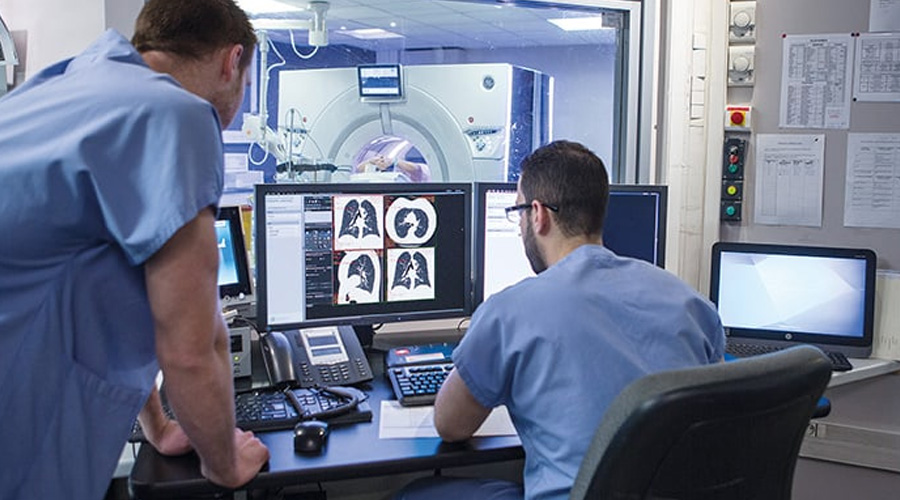
AI-Powered Algorithms Revolutionize Medical DiagnosisAI-Powered Algorithms Revolutionize Medical Diagnosis Artificial Intelligence (AI) is rapidly transforming the healthcare industry, and one of its most significant impacts is on medical diagnosis. AI-powered algorithms are empowering healthcare professionals with unparalleled capabilities to detect and analyze medical conditions, leading to more accurate and timely diagnoses. Early Disease Detection: AI algorithms can analyze vast amounts of patient data, including medical history, genetic information, and lifestyle factors, to identify patterns and predict disease risk. This enables early detection of conditions like cancer, heart disease, and diabetes, even before symptoms manifest. Early diagnosis allows for timely interventions and improves patient outcomes. Automated Image Analysis: Machine learning algorithms can process medical images, such as X-rays, CT scans, and MRIs, to identify subtle abnormalities and make diagnoses. Algorithms can detect conditions like pneumonia, tumors, and fractures with increased accuracy and speed, reducing the need for multiple tests and minimizing diagnostic delays. Personalized Treatment Plans: AI-powered algorithms can analyze individual patient data to determine the most appropriate treatment options. By considering a patient’s unique characteristics, medical history, and response to previous therapies, algorithms can tailor treatment plans that optimize outcomes and minimize side effects. Remote and Accessible Care: AI algorithms enable remote and accessible medical diagnosis. Online platforms and mobile applications incorporate AI-powered tools that allow patients to upload symptoms, images, and other information for remote analysis. This expands access to healthcare in underserved areas and improves convenience for patients. Challenges and Considerations: While AI algorithms offer immense potential, there are also challenges to address: * Data Privacy and Security: AI algorithms rely on sensitive patient data, so ensuring its privacy and security is paramount. * Algorithm Bias: Algorithms can exhibit biases if trained on incomplete or biased data, leading to inaccurate diagnoses. * Ethical Considerations: The use of AI in healthcare raises ethical concerns about job displacement, algorithm transparency, and the potential for misdiagnosis. Conclusion: AI-powered algorithms are revolutionizing medical diagnosis by enabling early disease detection, automated image analysis, personalized treatment plans, and remote accessible care. While there are important challenges to address, the potential benefits of AI in healthcare are vast. By embracing this technology, healthcare providers can improve patient outcomes, optimize treatment, and transform the way we diagnose and treat medical conditions.
Posted inNews